What is a molar toothache? Toothache in molars not only causes discomfort but also poses other potential dangers. Therefore, early care and treatment are crucial.
The following article from BeDental will provide you with information about toothache in molars, the causes, and treatment methods for toothache in molars. Additionally, you will also receive advice on a suitable diet to prevent this condition. Let’s refer to it to protect your oral health.
What is a molar toothache?
Each location of a throbbing tooth will have different treatment protocols and pain relief methods. Therefore, before learning how to deal with a molar toothache, you need to accurately determine the location and structure of the molar tooth in order to find the appropriate treatment for the toothache.
The concept of a molar tooth refers to the teeth number 6 and 7 in the dental arch. A normal person will have 8 molar teeth.
The main function of these teeth is to chew and grind food into small pieces before it is swallowed into the stomach. Therefore, molars play a crucial role in chewing, facilitating the digestion process more easily and effectively.
Similar to other teeth, molars are composed of tooth enamel, dentin, and tooth pulp. Specifically:
- Tooth enamel is the outermost layer that serves to protect the inner structures.
- Adjacent to the enamel is dentin. Dentin contains numerous tiny tubes that house dentinal tubules, which provide sensation to the tooth when consuming hot, cold, sour, or sweet foods.
- The innermost layer is the tooth pulp. The function of the pulp is to nourish and regenerate dentin and help perceive external stimuli. This is also why issues related to the pulp, such as trauma, pulpitis, or pulp necrosis, often cause a throbbing and uncomfortable sensation for patients.
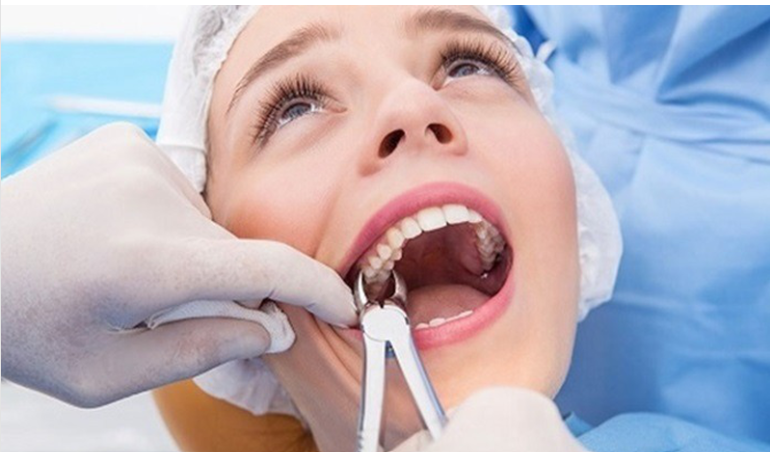
9 Common Causes of Molar Toothache
Molar toothache is a common phenomenon because these teeth experience the greatest chewing force in the dental arch and are prone to injury from various impacts. The condition of having a molar toothache or gum pain in the molars is quite common, with varying degrees of dull or intense pain depending on the oral health condition of each patient.
Here are the common causes of molar toothache:
Molar teeth are overly sensitive to temperature changes.
Molar teeth that are decayed but not detected and treated in time can lead to enamel erosion, bringing the nerve endings inside the tooth closer to food and drinks. This makes it easier for you to feel throbbing or aching pain in the molars when consuming extremely hot or cold items.
Additionally, sensitivity to temperature changes causing discomfort in the molars can also be a symptom of a cracked tooth, tooth decay, gum problems, or a loose filling in a deep cavity.
Signs of tooth crowding.
Molar toothache can be caused by tooth crowding. This phenomenon occurs when the molar tooth is infected or when tooth decay develops extensively and cannot be fully treated. Symptoms of tooth crowding can appear along the gumline or near the base of the tooth.
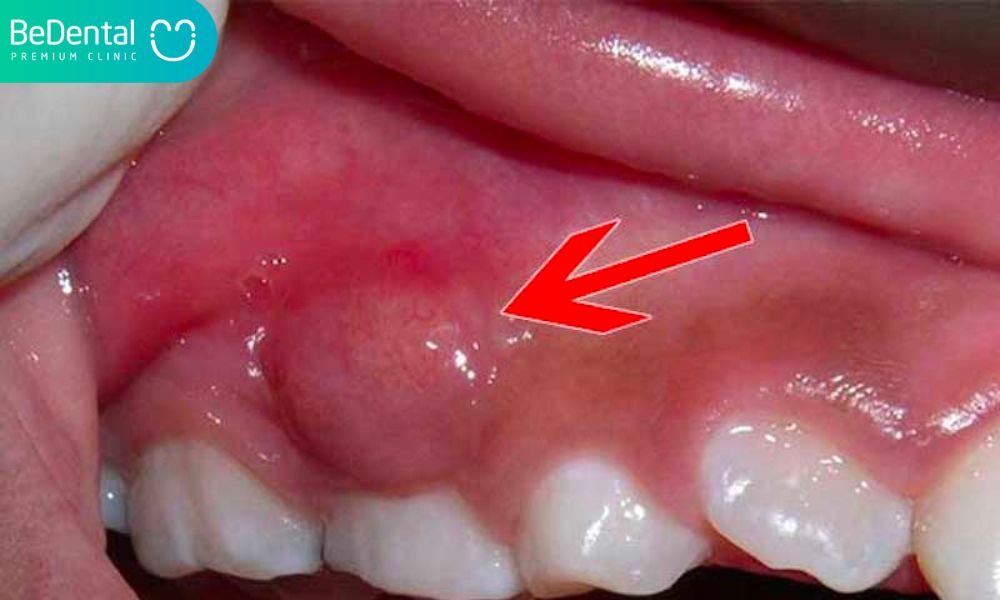
To determine if a molar tooth is crowded or not, patients can visually observe it because a crowded tooth will have a shape resembling a pus-filled sac. Most cases of tooth crowding are caused by tooth decay resulting from poor-quality dental interventions that have caused damage to the tooth.
Periodontal disease can cause molar toothache.
Gum infection and periodontal disease can negatively impact the molars. Therefore, to find a solution to the question of how to deal with molar toothache, you need to determine if the current condition of the tooth is caused by periodontal disease or not.
If periodontal disease is the cause of the molar toothache, you will frequently experience pain and discomfort when chewing and grinding food. Additionally, periodontal disease can damage gum tissues, causing inflammation and erosion of the bone socket. Without early intervention, not only will the molar toothache persist, but there is also a risk of permanent tooth loss.
Molar teeth can be cracked, fractured, or have loose fillings.
One of the causes of molar toothache is tooth cracking or fracturing due to trauma or over time. This throbbing pain often occurs when consuming extremely hot or cold food. In some cases, the pain may suddenly intensify.
Having pulpitis or tooth decay in the molar tooth.
Tooth decay in the molars occurs due to improper oral hygiene practices. When the molar tooth is decayed, it will cause pain, discomfort, and sensitivity.
In particular, if the decay in the molar tooth is not treated promptly, it can quickly progress to an infection such as pulpitis. At this point, the pain and sensitivity become more apparent. You should not take it lightly and seek immediate treatment to prevent permanent tooth loss.
Related to sinusitis or sinus infection
Some cases of molar toothache in the sixth and seventh molars are due to sinusitis or sinus infection. Most patients with sinusitis will feel toothache in the upper molars because they are closest to the sinuses. When the sinuses are infected or inflamed, the pressure can spread down to the molars, which is understandable.
Impacted wisdom teeth can affect the molars
Some patients will experience noticeable molar toothache parallel to the process of wisdom tooth eruption. In most cases, this condition is due to the wisdom tooth erupting in an incorrect position or being unable to break through the gums.
Patient’s teeth grinding habit
Teeth grinding is a bad habit that needs to be eliminated because it not only affects oral health but also causes molar toothache or sensitivity. Although you can control teeth grinding during the day, you should find ways to prevent teeth grinding at night, especially while sleeping.
Issues with the jaw
Molar toothache in the sixth and seventh molars can be due to problems with the jaw, particularly temporomandibular joint disorder (TMJ). If this condition occurs, the areas surrounding the jaw can be painful, and chewing activities from the molars can also be affected.
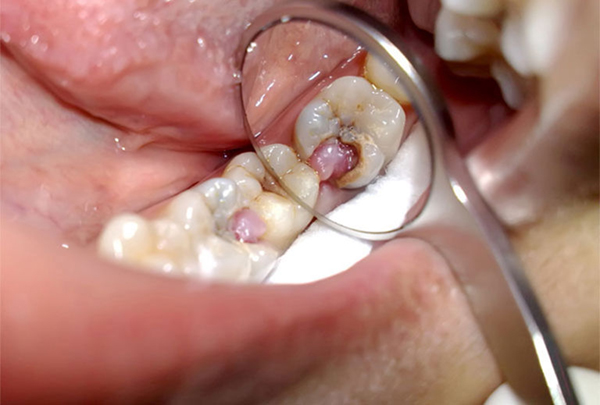
Symptoms accompanying molar toothache indicate danger
Molar toothache is a condition that should not be taken lightly as it is a warning sign that there is a problem with the teeth or jaw. Due to the various causes of toothache in the sixth and seventh molars, the typical symptoms are also diverse.
Below are some symptoms accompanying the dangerous molar toothache condition that you should not overlook:
- Headache.
- High fever.
- Pain near the ear.
- Throbbing pain when chewing food.
- Stinging pain when eating something too hot or too cold, sometimes even sudden sharp pain.
- Sensitivity to overly sweet, sour, hot, or cold foods.
- Feeling of sinus pain, pain near the jaw.
- Bleeding gums or swollen gums.
- Sharp, throbbing pain inside the jaw.
- More severe pain at night.
- Stiff, uncomfortable jaw muscles.
Having fever while experiencing Toothache ? What to do ?
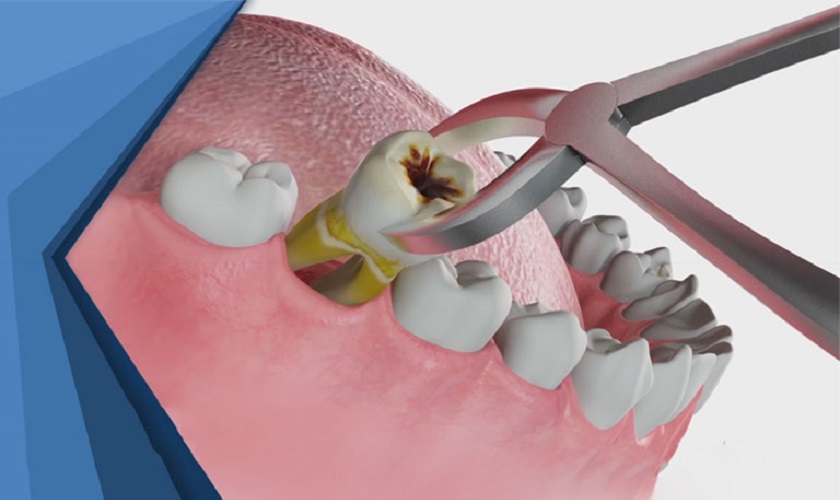
What to Do When You Have a Toothache? Most effective ways to reduce molar toothache
What should you do when experiencing molar toothache? Before seeking comprehensive treatment for the painful impacted wisdom tooth, you can quickly consider some pain relief options to alleviate the discomfort. Because the treatment methods will vary depending on the underlying cause. While waiting, you can consider the following ways to reduce pain when dealing with impacted wisdom teeth:
- Use pain relievers such as paracetamol or non-steroidal anti-inflammatory drugs.
- Apply hot or cold compresses to the affected area of the face where the painful impacted tooth is located.
- Rinse your mouth with saline solution, which is an effective and safe way to reduce pain in the sixth and seventh molars.
- Rinse your mouth with green tea, as it has strong antibacterial properties that can slow down the development of tooth decay and relieve symptoms of gum inflammation.
- Consult with a specialist and consider using topical pain relief medications containing Benzocaine. Since these medications are potent and may have side effects, it is important to seek medical advice.
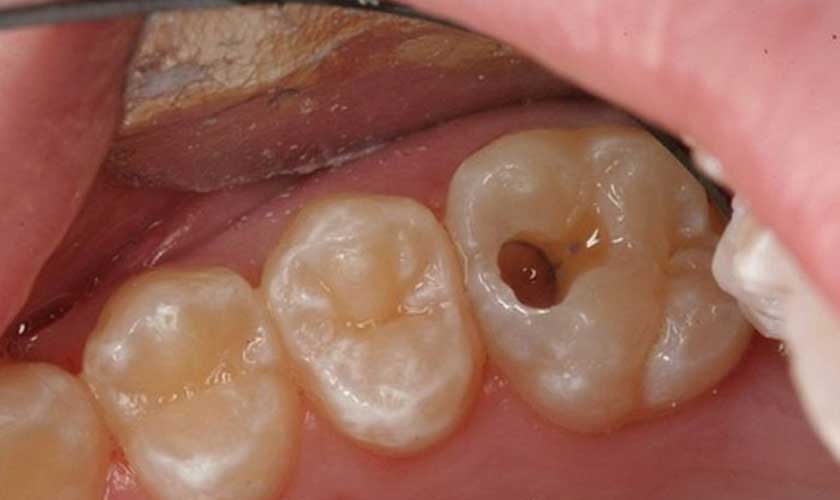
Effective and safe ways to relieve molar toothache:
Effective and safe ways to relieve molar toothache:Dealing with a painful impacted wisdom tooth is something no one wants to experience. If you have tried various methods to reduce the pain but haven’t had any success, it is advisable to seek comprehensive treatment.
So what should you do when experiencing molar toothache? How can impacted wisdom teeth in the upper and lower jaw be treated effectively?
Below are effective and safe methods to treat molar toothache corresponding to each underlying cause, helping you alleviate the throbbing and painful sensation in this area:
For sensitivity-related impacted wisdom teeth
For cases of mild sensitivity in impacted wisdom teeth, it is recommended to use toothpaste specifically formulated for sensitive teeth. If the condition persists or worsens, it is best to consult a dentist for examination and treatment.
Causes of pain in the 6th and 7th molars due to tooth impaction
To completely eliminate the throbbing and uncomfortable sensation, the dentist will perform surgery to remove the infected or inflamed tooth or perform a root canal treatment. Afterward, a dental crown will be placed on the impacted tooth to provide comprehensive protection.
Molar toothache caused by periodontal disease
Depending on the severity of the periodontal inflammation causing the molar toothache, the dentist may suggest corresponding treatment protocols such as:
- Removing bacterial pockets within the tooth and tooth enamel in cases of mild inflammation.
- Smoothing the root surface of the tooth by completely removing rough spots to prevent bacterial buildup.
- Using oral antibiotics or topical application for more severe cases of periodontal inflammation.
- Performing surgery for severe cases of periodontal disease.
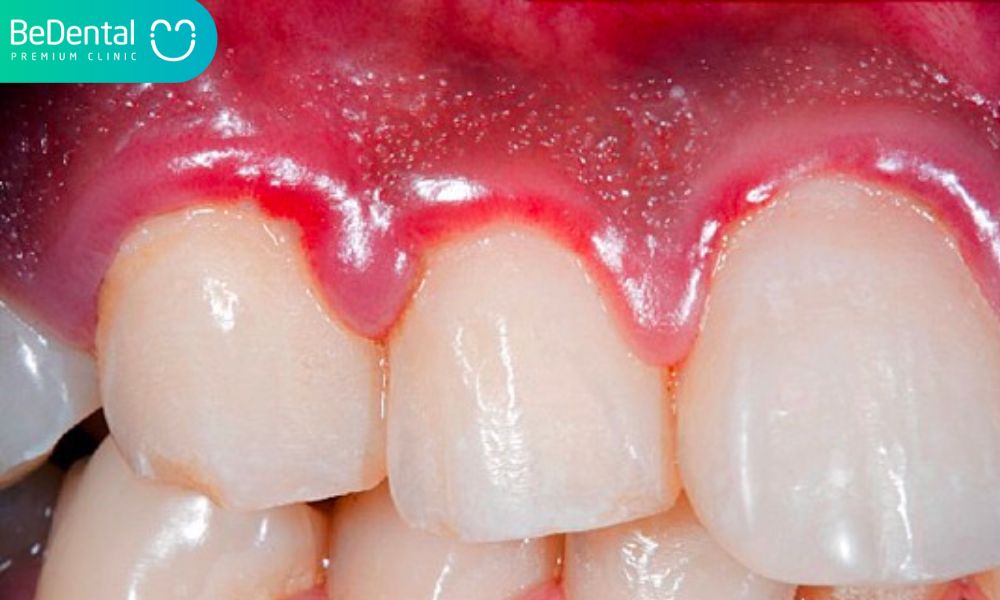
Treating toothache with deep tooth decay or pulpitis
Depending on the severity of the tooth decay, the dentist may suggest treatment options such as dental fillings, root canal treatment, or dental crowns. However, complete removal of the deep decay is necessary to effectively eliminate the infection.
Treating toothache caused by sinusitis or sinus infection
If the molar toothache is influenced by sinusitis or sinus infection, it is necessary to consult an otolaryngologist to assess the severity. Appropriate treatment methods will then be applied. Once the sinus infection is controlled, the toothache will automatically disappear.
Toothache caused by impacted wisdom teeth
If the impacted wisdom tooth is causing toothache due to misalignment, the dentist will perform an X-ray and may recommend extraction. Even in cases where the impacted tooth is not causing severe pain, if it is misaligned, the dentist may still recommend extraction to prevent other oral diseases from occurring.
Improving bad habits such as teeth grinding
You can explore preventive tools and aids to hinder teeth grinding. Visit a reputable dental clinic to receive advice and choose suitable tools.

How to prevent toothache from impacted wisdom teeth?
What should you do after wisdom tooth extraction to prevent toothache? To avoid experiencing toothache from impacted wisdom teeth, you can consider the following:
- Avoid consuming foods and drinks that are high in sugar.
- Encourage a balanced and healthy diet with proper nutrition.
- Avoid chewing on hard foods as they can cause damage to the impacted tooth.
- Pay attention to maintaining oral hygiene by rinsing your mouth with filtered water after every meal.
- Brush your teeth at least twice a day to ensure oral health.
- Develop a habit of using dental floss to remove food debris between teeth or use mouthwash with saltwater.
- Regularly visit the dentist for check-ups and teeth cleaning to control any potential oral diseases.
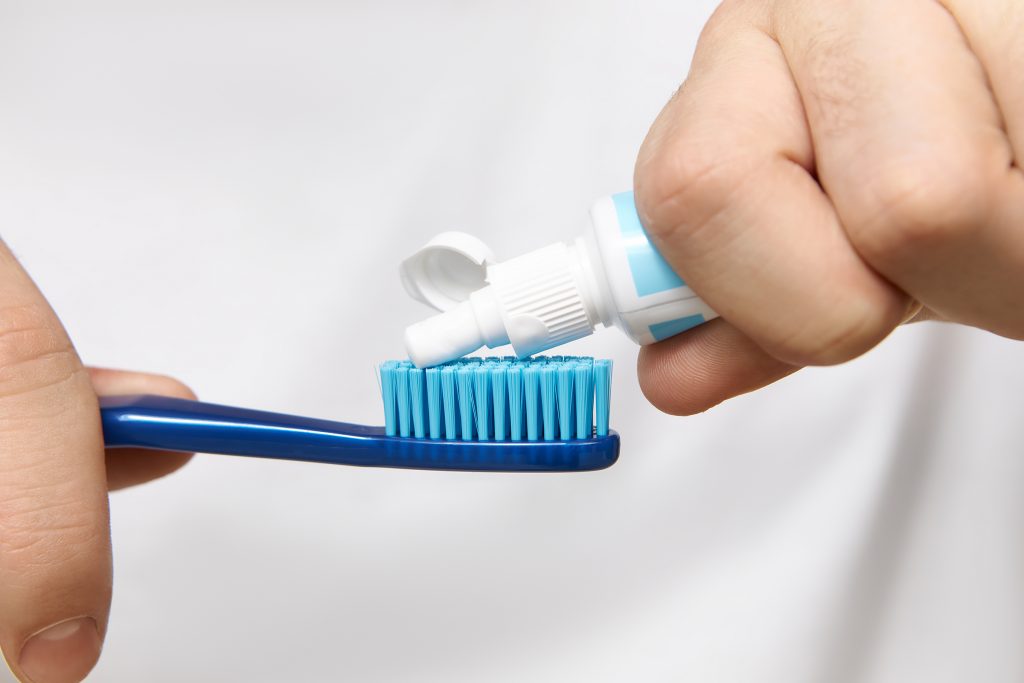
The article has provided you with a comprehensive understanding of the issue of toothache from impacted wisdom teeth. To avoid dangerous complications, you should not be complacent if you experience persistent throbbing or lingering toothache from impacted teeth. Contact BeDental for free consultation with a dentist.
Tư vấn chuyên môn bài viết:
BÁC SĨ ĐÀM TRỌNG HIẾU
BEDENTAL - TOP STANDARD DENTISTRY SYSTEM
In HANOI
Address 1: 7B Thi Sach St, Ngo Thi Nham, Hai Ba Trung Dist, Ha Noi. - 0934.61.9090
Address 2: No 129 Hoang Ngan, Yen Hoa, Cau Giay Dist, Ha Noi. - 0934.61.9090
In HO CHI MINH
Address 1: 53 -55 -57 Pho Duc Chinh St, Nguyen Thai Binh, Dist. 1, Ho Chi Minh. - 0766.00.8080
Working: 9am - 8pm everyday
Website: https://bedental.vn/en/


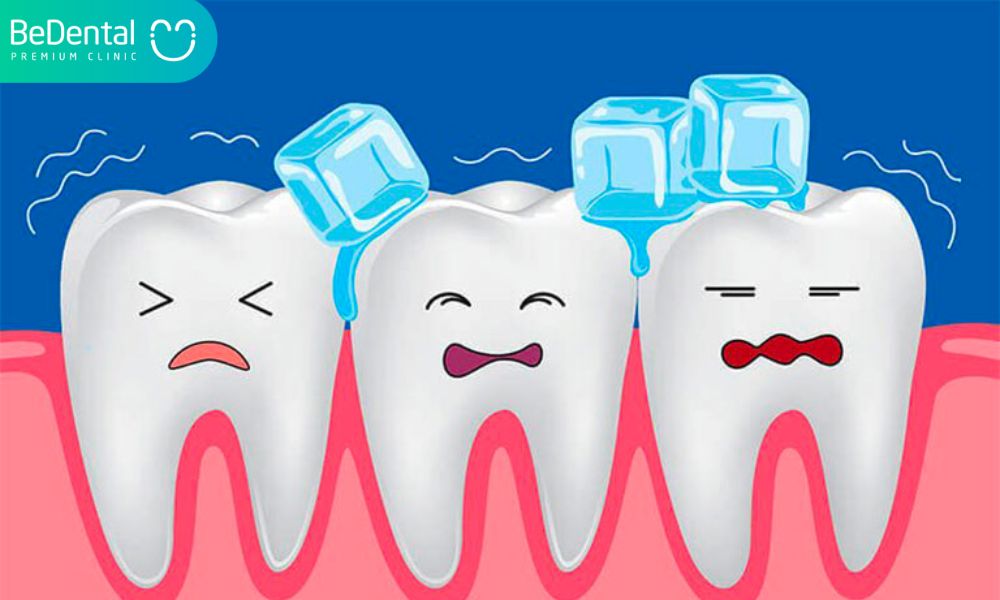




Pingback: Experiencing Sensitivty After Wisdom Tooth Extraction and Some treatment methods – Be Dental